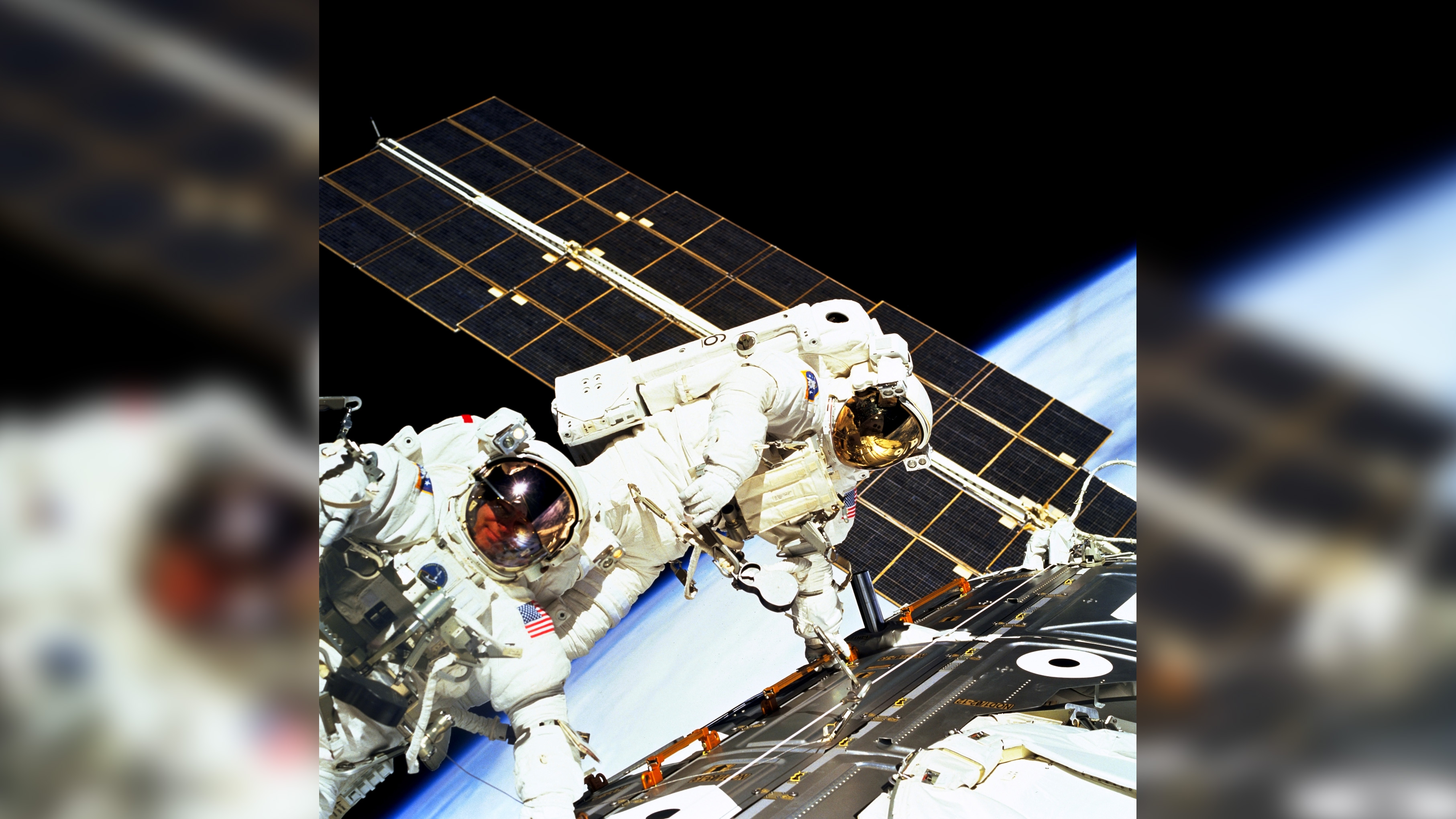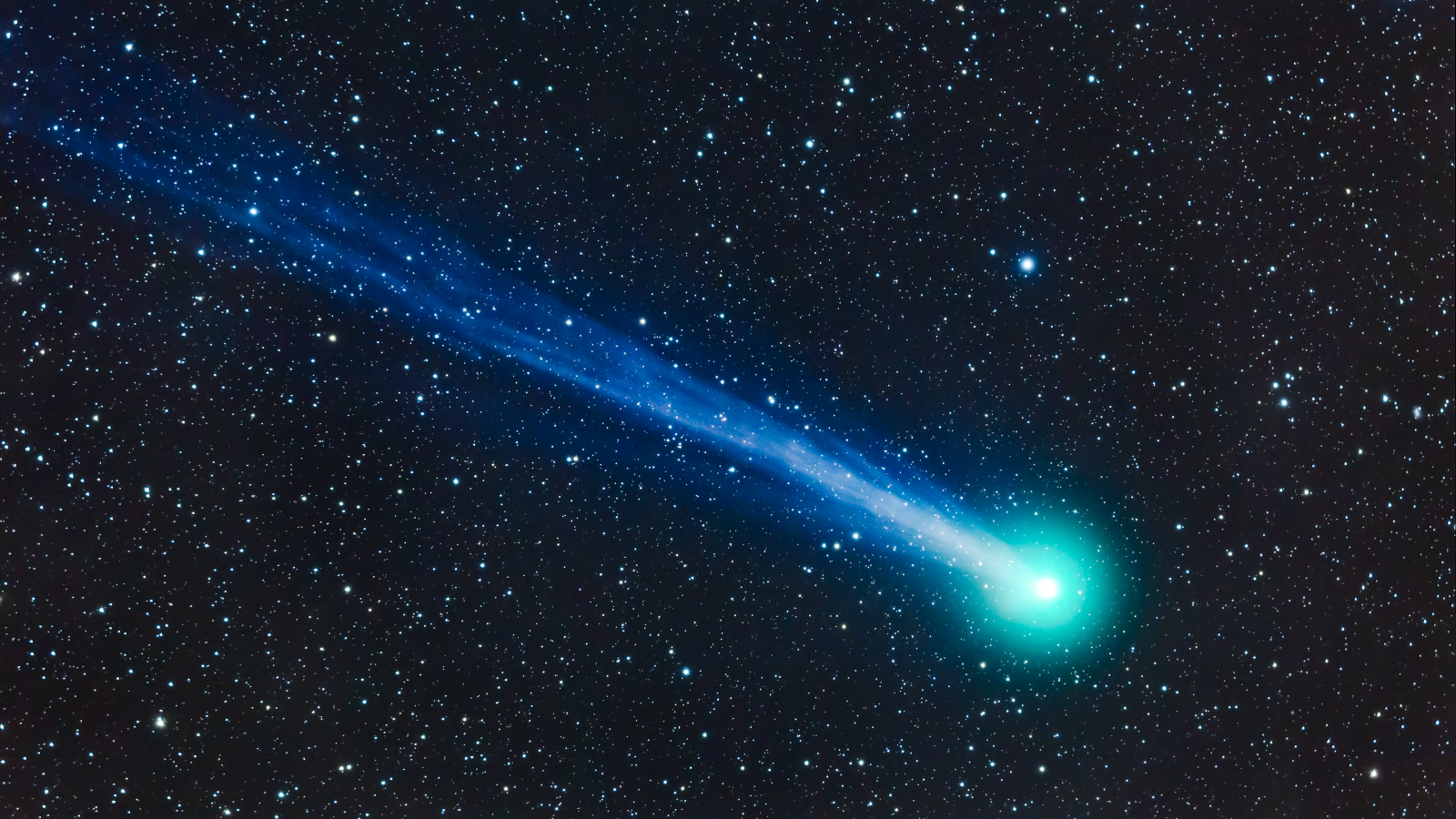Russia will pull out of the International Space Station, space agency chief confirms
"The decision has already been made, we are not obliged to talk about it publicly," Roscosmos chief said.

Get the world’s most fascinating discoveries delivered straight to your inbox.
You are now subscribed
Your newsletter sign-up was successful
Want to add more newsletters?

Delivered Daily
Daily Newsletter
Sign up for the latest discoveries, groundbreaking research and fascinating breakthroughs that impact you and the wider world direct to your inbox.

Once a week
Life's Little Mysteries
Feed your curiosity with an exclusive mystery every week, solved with science and delivered direct to your inbox before it's seen anywhere else.

Once a week
How It Works
Sign up to our free science & technology newsletter for your weekly fix of fascinating articles, quick quizzes, amazing images, and more

Delivered daily
Space.com Newsletter
Breaking space news, the latest updates on rocket launches, skywatching events and more!

Once a month
Watch This Space
Sign up to our monthly entertainment newsletter to keep up with all our coverage of the latest sci-fi and space movies, tv shows, games and books.

Once a week
Night Sky This Week
Discover this week's must-see night sky events, moon phases, and stunning astrophotos. Sign up for our skywatching newsletter and explore the universe with us!
Join the club
Get full access to premium articles, exclusive features and a growing list of member rewards.
Russia has confirmed it will pull out of the International Space Station (ISS), perhaps as soon as two years from now, because of the sanctions imposed on it after its invasion of Ukraine, according to news reports.
"The decision has already been made, we are not obliged to talk about it publicly," Dmitry Rogozin, the director-general of the federal Roscosmos space agency, told the state-owned Rossiya-24 TV channel on Saturday (April 30), according to the independent Russian news agency TASS.
Rogozin didn't say when Russia's involvement in the ISS project will come to an end, although he affirmed it would give at least a year's notice "in accordance with our obligations."
Russian space analysts have already noted that Russia never agreed to extend its involvement in the ISS beyond 2024; the U.S. space agency NASA and the other international partners now want the project extended to at least 2030.
Rogozin, an experienced politician with close ties to Russian president Vladimir Putin, has a history of making blustery statements.
He posted on Twitter on Feb. 24 — the day after Russia launched its invasion of Ukraine — that any international sanctions on Russia imposed over the Ukrainian invasion would "destroy" the partnership between NASA and Roscosmos that keeps the space station operating and aloft.
And he reaffirmed those comments last month, tweeting that normal relations between the ISS partners could only be restored after "the complete and unconditional lifting of illegal sanctions."
Get the world’s most fascinating discoveries delivered straight to your inbox.
Related: Russia's Ukraine invasion could imperil international science
Orbital outpost
The first modules of the International Space Station were boosted into orbit in 1998, and expected to last just 15 years.
The space station's mission has since been extended, although maintenance problems — especially on the Russian half of the space station — have increased in recent years; and experts have warned that some of the ISS modules are getting old, NBC News reported.
The U.S. and Russia are the major partners on the ISS project, which was initiated after they cooperated on the last stages of the Mir space station in the 1990s, according to NASA.
Historically, the U.S. has mainly been responsible for providing life support for the up to 10 people who lived aboard the ISS at any one time, and Russia has mainly been responsible for keeping the ISS in orbit, with regular blasts from the engines of the Soyuz spacecraft docked there.
Russia also controlled access to the ISS for several years because only its Soyuz flew there after the U.S Space Shuttle ended operations in 2011; but the advent of new passenger-carrying spacecraft like the SpaceX Dragon means that's no longer the case.
Space experts have also noted that NASA is now testing its ability to keep the ISS in orbit with blasts from the engines of the Cygnus cargo spacecraft, which is manufactured and launched by the U.S. aerospace company Northrop Grumman – meaning that Russia's involvement in the ISS might no longer be needed.
Sanctions and space
Rogozin's latest comments seem to imply that Russia could soon give notice and start its pullout from the ISS project.
But activities on the space station have been relatively normal since he made his initial comments, including the arrival of three Russian cosmonauts in mid-March, Live Science sister site Space.com reported.
TASS also reported comments Rogozin had made a day earlier than his television interview, which seemed to suggest that any decision on the fate of the ISS project wasn't yet final.
"A decision regarding the ISS future will depend to a great extent on the developing situation both in Russia and around it," he told the news agency in an interview on Friday, April 29.
He also said Roscosmos proposals for cooperation on the ISS project after 2024 had been sent to the Russian government and President Putin.
And in another story on TASS dated the same day, Rogozin said that Russia would begin to test "one-orbit" flights to the ISS by Soyuz spacecraft in 2023 and 2024 – a trip that usually requires the spacecraft to make at least four Earth orbits.
That schedule, too, doesn't seem to fit well with assertions that the demise of Russia's involvement in the ISS project is imminent.
Either way, Russia already has advanced plans to build a successor space station to the ISS, according to Space.com.
The first module, being built by the Energia corporation, would cost at least $5 billion and could go into orbit as soon as 2025.
Originally published on Live Science.
Tom Metcalfe is a freelance journalist and regular Live Science contributor who is based in London in the United Kingdom. Tom writes mainly about science, space, archaeology, the Earth and the oceans. He has also written for the BBC, NBC News, National Geographic, Scientific American, Air & Space, and many others.
 Live Science Plus
Live Science Plus











